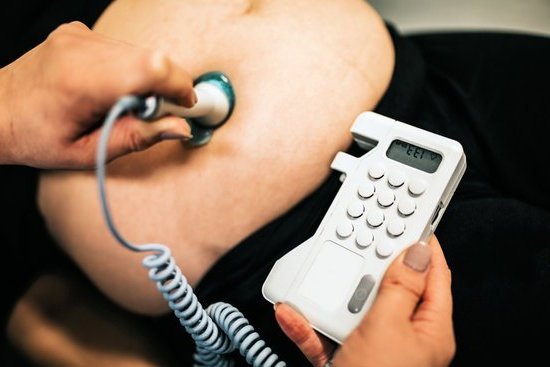Are headaches normal during pregnancy? Expectant mothers often experience a myriad of symptoms and changes as their bodies adapt to growing another life. Among these common occurrences are headaches, which can be attributed to various factors such as hormonal changes, stress, and dehydration. While it may be unsettling for pregnant women to deal with headaches, it is essential to understand that they are a common occurrence during this time.
Throughout pregnancy, the body undergoes significant hormonal fluctuations which can trigger headaches in some women. Additionally, the stress associated with the anticipation of childbirth and other life changes can also contribute to these discomforts. Dehydration is another major factor leading to headaches during pregnancy as the body’s demand for water increases significantly to support the developing baby.
Different types of headaches can be experienced during pregnancy including tension headaches, migraines, and sinus headaches. It is crucial for expectant mothers to prioritize staying hydrated and maintaining a healthy diet to help reduce the frequency and severity of these headaches. By incorporating self-care practices such as rest, relaxation techniques, cold compress application, and gentle massages into their routine, pregnant women can effectively manage their headaches.
Understanding the Causes of Headaches During Pregnancy
During pregnancy, many women experience various symptoms and changes in their bodies. One common symptom that often arises is headaches. This section will delve into the causes of headaches during pregnancy, shedding light on why they occur and how expectant mothers can manage them effectively.
Hormonal Changes
Hormonal fluctuations are a significant factor contributing to headaches during pregnancy. The surge in hormones, especially estrogen and progesterone, can trigger vascular changes that may lead to headaches. These hormonal shifts can also affect neurotransmitters in the brain, potentially causing an increase in headache frequency or intensity.
Stress
Pregnancy itself can be a stressful time for many women due to the physical and emotional changes they undergo. Stress is known to be a common trigger for headaches, so it comes as no surprise that pregnant women may experience them more frequently. Finding ways to manage stress through relaxation techniques, mindfulness practices, or seeking support from loved ones can help reduce the occurrence of stress-induced headaches.
Dehydration
Dehydration is another common culprit for headaches during pregnancy. With the increased demands on the body during gestation, proper hydration becomes crucial. Dehydration can lead to electrolyte imbalances and decreased blood flow to the brain, resulting in headaches. Expectant mothers should aim to drink plenty of fluids throughout the day and consume hydrating foods like fruits and vegetables to prevent dehydration-related headaches.
By understanding these factors – hormonal changes, stress, and dehydration – that contribute to headaches during pregnancy, women can take proactive steps to manage their symptoms effectively. Ensuring proper self-care practices like staying hydrated, managing stress levels, and seeking appropriate medical attention when needed can make a significant difference in alleviating headache discomfort during this transformative time.
Types of Headaches Experienced During Pregnancy
During pregnancy, the body undergoes numerous changes that can lead to various symptoms, including headaches. It is important for expectant mothers to understand that experiencing headaches during pregnancy is not uncommon. The hormonal fluctuations, stress, and dehydration that often accompany pregnancy can contribute to the onset of headaches. However, knowing the different types of headaches that may occur can help in effectively managing and easing discomfort.
Types of Headaches Experienced During Pregnancy
- Tension Headaches: Tension headaches are the most common type experienced during pregnancy. They are often characterized by a dull, constant pain or pressure around the head and neck area.
- Migraines: Migraines are severe headaches that are usually accompanied by other symptoms such as nausea, vomiting, and sensitivity to light and sound. Hormonal changes during pregnancy can trigger migraines in some women.
- Sinus Headaches: Sinus headaches result from inflammation or infection in the sinuses. Pregnancy can make women more susceptible to sinus issues due to changes in nasal passages and mucous membranes.
Managing these different types of headaches requires specific strategies tailored to their individual characteristics. For example, tension headaches may respond well to relaxation techniques and stress management, while migraines may require more targeted interventions such as cold compresses or medication prescribed by a healthcare provider. Understanding the unique features of each type can help pregnant women take appropriate steps towards relief.
It is essential for expectant mothers experiencing frequent or severe headaches to prioritize hydration and maintain a healthy diet throughout their pregnancy. Dehydration can exacerbate headache symptoms, so drinking an adequate amount of water daily is crucial. Additionally, certain dietary triggers such as caffeine withdrawal or low blood sugar levels can also contribute to headache development. By focusing on proper hydration and nutrition, pregnant women can better manage and potentially prevent headaches during this sensitive time.
Importance of Staying Hydrated and Maintaining a Healthy Diet to Reduce Headaches
Pregnancy is a time of significant changes in a woman’s body as it adapts to support the growth and development of the baby. Along with these changes also come various symptoms that can affect expecting mothers, one of which
Staying hydrated is crucial during pregnancy not only for the overall well-being of both mother and baby but also to help reduce the frequency and intensity of headaches. Dehydration can lead to headaches, so it is important for pregnant women to drink plenty of water throughout the day.
Additionally, maintaining a healthy diet rich in nutrients can also play a role in preventing headaches. Ensuring adequate intake of fruits, vegetables, whole grains, and lean proteins can help regulate blood sugar levels and reduce the likelihood of experiencing headaches.
In addition to staying hydrated and following a nutritious diet, expectant mothers can take additional steps to alleviate headaches during pregnancy. Avoiding triggers such as caffeine or processed foods that may contribute to headache onset can be beneficial.
Incorporating relaxation techniques such as mindfulness meditation or deep breathing exercises can help reduce stress levels which are often linked to headaches. It is essential for pregnant women experiencing persistent or severe headaches to consult with their healthcare provider for proper evaluation and guidance on managing their symptoms effectively while safeguarding their health and that of their baby.
Common Remedies for Easing Headaches During Pregnancy
During pregnancy, experiencing headaches is a common occurrence for many women. These headaches can be triggered by various factors such as hormonal changes, stress, and dehydration. It is important for expectant mothers to understand that while headaches are normal during pregnancy, there are ways to alleviate the discomfort and manage the pain effectively.
Rest and Relaxation Techniques
One of the most crucial steps in easing headaches during pregnancy is to get adequate rest and relaxation. Fatigue can often exacerbate headache symptoms, so it’s essential for pregnant women to prioritize sleep and take breaks throughout the day. Incorporating relaxation techniques such as deep breathing exercises, meditation, or prenatal yoga can also help reduce stress levels and alleviate tension that may be contributing to the headaches.
Cold Compress and Massage
Another effective way to ease headaches during pregnancy is through the use of cold compresses and gentle massages. Placing a cold compress on the forehead or neck area can help constrict blood vessels and relieve pain. Additionally, getting a massage from a qualified prenatal massage therapist can help relax tense muscles and improve circulation, which may aid in reducing headache intensity and frequency.
Hydration and Nutrition
Ensuring proper hydration and maintaining a healthy diet are key components in managing headaches during pregnancy. Dehydration can often lead to headaches, so drinking plenty of water throughout the day is essential. It is also important to consume balanced meals rich in nutrients like magnesium, which has been linked to reducing migraines. By staying hydrated and eating well, expectant mothers can potentially minimize the occurrence of debilitating headaches during this crucial time.
By incorporating these remedies into their daily routine, pregnant women can effectively ease headache symptoms without resorting to medications that may pose risks during pregnancy. However, if headaches persist or become severe despite these self-care measures, it is vital for expectant mothers to seek medical attention promptly for further evaluation and treatment options.
When to Seek Medical Attention for Severe or Persistent Headaches During Pregnancy
During pregnancy, experiencing headaches is relatively common due to the various changes happening in a woman’s body. However, the frequency and intensity of these headaches can vary from person to person. It is essential for expectant mothers to be aware of when it is necessary to seek medical attention for severe or persistent headaches. While occasional mild headaches are considered normal during pregnancy, certain signs indicate a need for medical evaluation.
If you are experiencing severe headaches that do not respond to at-home remedies or over-the-counter medication, it is crucial to consult your healthcare provider. Additionally, if you have a history of migraines or are experiencing new types of headaches with neurological symptoms such as vision changes, difficulty speaking, or numbness, it is recommended to seek medical advice promptly. These could be indicators of more serious underlying issues that need to be addressed by a healthcare professional.
Furthermore, if you find that your headaches are accompanied by high fever, swelling in the hands and face, sudden weight gain, or blurry vision, these symptoms should not be ignored. They could be associated with conditions like preeclampsia or gestational hypertension, which require immediate medical intervention to ensure the health and safety of both the mother and the baby.
| Signs | Indications |
|---|---|
| Severe Headaches | No response to at-home remedies or OTC medication |
| Neurological Symptoms | Changes in vision/speech or numbness |
| Other Symptoms | Fever, sudden weight gain, blurry vision |
Tips for Preventing Headaches During Pregnancy
During pregnancy, hormonal changes, stress, and dehydration can often lead to headaches for many expectant mothers. While experiencing headaches during pregnancy is relatively common, it is important to take steps to prevent and manage them effectively. Here are some tips for preventing headaches during pregnancy:
- Managing Stress: Finding ways to reduce stress levels can go a long way in preventing headaches during pregnancy. Engaging in relaxation techniques such as deep breathing, meditation, prenatal yoga, or even just taking breaks throughout the day can help lower stress levels.
- Proper Posture: Maintaining good posture can help alleviate tension in the neck and shoulders, which are common triggers for headaches. Make sure to sit and stand up straight, avoid slouching, and use proper ergonomics while sitting at a desk or computer.
- Regular Exercise: Staying active during pregnancy can not only benefit your overall health but also help prevent headaches. Gentle exercises such as walking, swimming, or prenatal yoga can improve circulation and reduce muscle tension that may contribute to headaches.
By incorporating these simple practices into your daily routine, you can potentially minimize the occurrence of headaches during pregnancy and promote overall well-being for both you and your baby. It is essential to listen to your body and prioritize self-care during this special time in your life. Remember that seeking medical attention for severe or persistent headaches is always recommended to ensure the health and safety of you and your baby.
Conclusion
During pregnancy, many changes occur within a woman’s body that can lead to various symptoms, one of which includes headaches. Hormonal fluctuations, increased stress levels, and dehydration are common culprits behind these headaches. However, it is essential for expectant mothers to understand that experiencing headaches during pregnancy is relatively normal.
While headaches can be uncomfortable and sometimes debilitating, they are manageable with the right self-care techniques. Staying hydrated, maintaining a healthy diet, getting enough rest, and utilizing relaxation techniques can all help in reducing the frequency and intensity of headaches during pregnancy. Additionally, applying cold compresses or receiving gentle massages can provide relief from tension headaches or migraines.
It is crucial for pregnant women to listen to their bodies and seek medical attention if they experience severe or persistent headaches that do not respond to at-home remedies. By proactively managing stress levels, practicing good posture, and engaging in regular physical activity, expectant mothers can also take proactive steps towards preventing headaches during pregnancy. Remember, while headaches are common during this period, they do not have to disrupt the joy of expecting a new life.
Frequently Asked Questions
When Should I Be Worried About Headaches During Pregnancy?
Headaches during pregnancy are common due to hormonal changes, increased blood volume, and other factors. However, you should be concerned if the headaches are severe or persistent, accompanied by blurred vision, dizziness, or sudden swelling. It is essential to consult your healthcare provider if you have any concerns about your headaches during pregnancy.
How Can I Get Rid of a Headache While Pregnant?
Managing headaches during pregnancy can be challenging since many medications are not safe for the baby. Instead, try natural remedies like applying cold or warm compresses to the head and neck, getting enough rest, staying hydrated, practicing relaxation techniques like deep breathing or yoga, and maintaining good posture.
If these methods do not help alleviate the headache, consult with your doctor for further guidance.
Is It Normal to Have a Headache at 16 Weeks Pregnant?
Experiencing a headache at 16 weeks pregnant is considered normal for many women due to hormonal fluctuations, increased blood flow, and other changes happening in the body during pregnancy. However, it is essential to monitor the intensity and frequency of your headaches.
If they become severe or persistent or if you experience other symptoms like visual disturbances or high blood pressure along with the headache at 16 weeks pregnant, it is advisable to contact your healthcare provider for evaluation and appropriate management.

Welcome to my fertility blog. This is a space where I will be sharing my experiences as I navigate through the world of fertility treatments, as well as provide information and resources about fertility and pregnancy.





